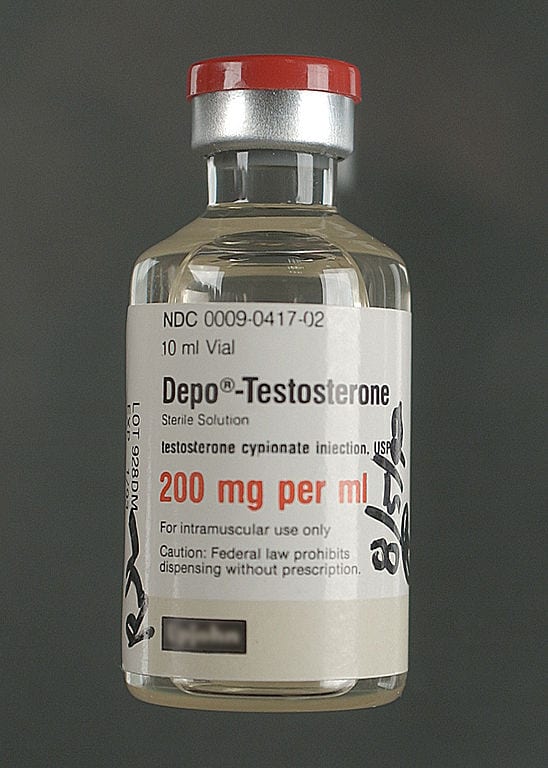Putting Testosterone to the Test
Testosterone is the new big drug on the market. Marketed to men with low T, a vague illness with even vaguer symptoms, there has been a recent explosion in its use. In line with this explosion are also the vast amounts of ways one can take testosterone, either as a cream, an implant, a gel, or patches. Recently, it has even been marketed to women as a way to treat the symptoms of menopause.
However, testosterone has shown that it might be the next biggest lawsuit on the market. With two clinical studies linking it to increased heart rates, strokes, and heart attacks it has raised a lot of questions. These are not just slight increases either, a study, published in the Journal of the American Medical Association (JAMA), found that a person who takes testosterone is 29% more likely to die, have a heart attack, or a stroke within the first 3 years of taking the drug. The other study, published in PLos One, reported that men over 65 are twice as likely to get a heart attack if they are using testosterone supplements in the first 90 days of using them. This is shocking when one realizes that the symptoms for low T, like less energy and loss of sex drive, coincide with just getting older.
The correlation between cardiovascular issues and testosterone therapy hasn’t gone unnoticed. Because of the two clinical studies mentioned above, the U.S. Food and Drug Administration (FDA), as of January 31, 2014, has decided to reassess the safety issues raised by testosterone therapy. Their investigation is not yet complete, but the fact that the FDA is willing to give it another look does not bode well for the new drug. This is especially true when one coincides this with the increase of lawsuits being filed by the victims of testosterone.
Another strike against testosterone therapy is that the issues are also being noticed abroad. The European Union has also been made aware of the risks and its regulatory body, the European Medical Agency (EMA), has decided to act and review the safety of these drugs based off the study posted in PLos One. Even though both of these studies by their respective regulatory bodies are still in progress, the agencies have cautioned people who are currently taking testosterone therapy to consult with their doctors.
While the reports are not yet back, it’s slightly disturbing that use of artificial testosterone is still on the rise. By 2017, testosterone therapy is projected to become a $5 billon dollar industry. The two new studies, while highly critical of the drug, are not enough to take it off the market or limit its use. While we wait for the FDA or the EMA’s results assessing the safety of testosterone therapy, a great deal of people may suffer from the adverse effects mentioned by the two clinical studies. While regulatory measures may come later, the only thing currently holding testosterone therapy back is legal pressure from victims.
Share This



